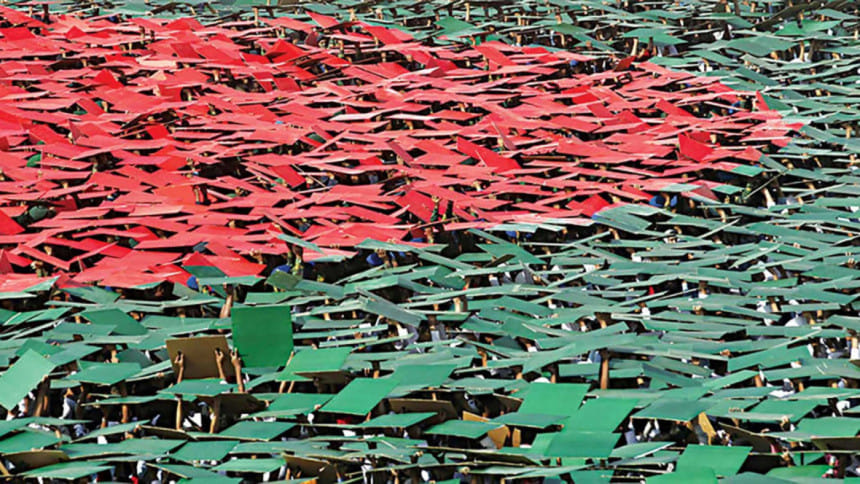Evaluating 50 years of Bangladesh

Bangladesh has come a long way since independence in 1971, crossing many milestones to reach where it has today. The chronicle of the 50-years-long journey is dotted with achievements—as well as numerous catastrophes, thrown its way by both nature and humans, which the country managed to overcome while upholding the tenets of independence. In his evaluation at a recent webinar marking the country's golden jubilee, Prof Rehman Sobhan said, "Bangladesh became a success case from the basket case in 50 years."
It is true that Bangladesh has an impressive track record of growth and poverty reduction that has made us all proud. From being one of the poorest nations at birth in 1971, with the 10th lowest per capita GDP in the world, Bangladesh reached lower-middle-income status in 2015, and is now on track to graduate from the UN's Least Developed Countries (LDC) list in 2026. Labelled as one of the fastest growing economies in the world over the past decades, the credit for its success goes to demographic dividend, RMG exports, and favourable macroeconomic conditions, according to the World Bank.
While eminent economists, scholars, social researchers and think-tanks at home and abroad endorse this view, they however have offered a few words of caution as well. While praising our achievements, they also pause to point out where things could have been much better.
Despite remarkable progress in economic and social development, the country is lagging behind in institutionalising democracy, strengthening important institutions, improving governance and protecting the environment. Widening inequalities in income, fading social parity and declining education standards need to be addressed urgently. Scholars believe ensuring accountability, good governance and public trust are pertinent issues for a democracy.
We feel these well-intentioned suggestions should be considered seriously as part of the 50-year celebration of our independence. There is no denying that the country's progress, and its recognition by the international community, has helped us overcome the negative stereotypes that had previously been attached to Bangladesh. Now we, as a nation, have a healthy positive perception about our abilities and our goals. One of the wisest ways for us to celebrate our success now is to study our strengths and weaknesses at present, so that we can chart our future course to reach the next 50-year milestone.

 For all latest news, follow The Daily Star's Google News channel.
For all latest news, follow The Daily Star's Google News channel. 



Comments